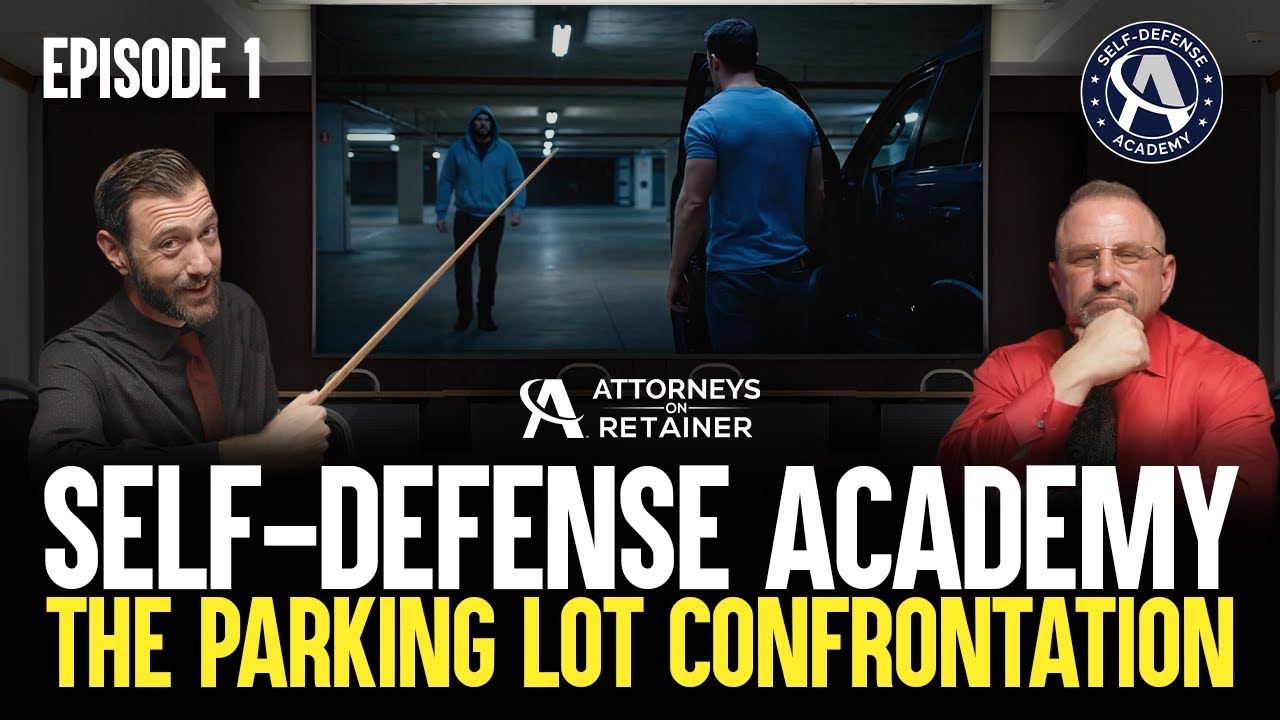Kayla Giles Shares Her Side of the Story with Attorneys On Retainer
March 4, 2024
AOR Program Update - 4/1/25
The Attorneys On Retainer Program has been updated since this video was initially released. The program is designed with the same strengths as the original program, particularly its close affiliation with the only law firm in the United States working solely on self-defense cases, and this new program includes much more! For additional information, click here.
Kayla Giles shot her ex-husband in what she maintains was an act of self-defense. She was convicted of second-degree murder and obstruction of justice. Now incarcerated, she has appealed her conviction and is currently awaiting a response from the Louisiana Supreme Court.
In this interview, criminal defense attorneys Marc J. Victor and Andrew C. Marcantel met virtually with Ms. Giles to hear her side of the story. The discussion focuses on her experience with the United States Concealed Carry Association (USCCA), specifically regarding how and why the organization abruptly dropped her case without adequate explanation.
“Had you talked to a criminal defense attorney in that moment, while the cops were walking up, the unequivocal advice would have been don’t talk to the police.”
– Attorney Marcantel
Background
Ms. Giles explained that she purchased a firearm due to escalating domestic tensions with her ex-husband during their custody exchanges. At the time, he displayed increasingly violent behavior and frequently provoked her, sometimes even arriving armed with a handgun when she was exchanging the children. Concerned for her safety, Ms. Giles initially sought a restraining order, but her request was denied. At one point, she resorted to borrowing a close friend’s gun for protection. It wasn’t until she completed a concealed carry class in Texas that she legally purchased her firearm. Shortly after, she obtained self-defense insurance through USCCA.
On the day of the incident, Ms. Giles was in the middle of a custody exchange. After placing the children in her ex-husband’s car, she returned to her vehicle. He then followed her, forcibly opened her car door before she could lock it, and in that moment, she fired a single shot, killing him.
Incentives Behind Denied Claims
Ms. Giles recalls purchasing USCCA insurance on the same day she bought her firearm. Before that, she had spent considerable time researching self-defense weapons and ammunition on USCCA’s website. Initially, Ms. Giles found USCCA’s guidance helpful and followed their recommended steps: calling 911 first, then contacting USCCA after the incident. However, at the time, she was unaware that speaking to USCCA representatives without first consulting an attorney could potentially harm her legal defense. The attorneys emphasize the importance of invoking one’s Fifth Amendment right against self-incrimination and speaking only to legal counsel following any self-defense incident.
“Initially, I thought they were great. I did exactly you know what they say to do on their website, which is to . . . call 911 . . . Be brief . . . that was also used against me later.”
– Kayla Giles
After the incident, USCCA assigned Ms. Giles an attorney, who was enthusiastic about the case, believing it presented a strong self-defense argument. Ms. Giles’ initial attorney submitted additional evidence, including favorable statements from her children. However, USCCA did not review this evidence and ceased funding the defense after contributing $50,000, which left Ms. Giles to cover the remaining legal costs out of pocket.
Ms. Giles’ second attorney, who represented her at trial, did not request a change of venue despite the case receiving significant media attention. The attorneys questioned that decision and agreed that moving the trial to a different jurisdiction would have likely strengthened her defense.
Trial Details, Evidence, and Prosecution Narrative
Ms. Giles did not testify at trial because her attorney believed her police statement, which was played during the trial, adequately conveyed her version of the events. At trial, the prosecution presented evidence from Ms. Giles’ devices, revealing she had searched for information about purchasing a firearm. The State argued this indicated premeditation in the killing of her husband. Attorney Marcantel countered by mentioning it is common and reasonable for individuals to take self-defense measures when they feel their safety is at risk.
The State also used Ms. Giles’ legal filings – such as her stated intent to relocate – as further evidence of a planned act. Her friend, who had loaned her a firearm, allegedly claimed Ms. Giles expressed a desire to kill her husband. Ms. Giles questioned the credibility of this claim, arguing that it would be illogical for the friend to provide Ms. Giles with a firearm if she truly believed Ms. Giles intended to commit murder.
Ms. Giles also raised concerns about inconsistencies in documents presented by USCCA, particularly noting the date on an essential contract was over a year earlier than her actual purchase, which she found suspicious.
The State asserted that even if Ms. Giles had a right to defend herself, the use of deadly force was excessive and unwarranted, suggesting she had other, less lethal options. Additionally, testimony from Ms. Giles’ children conflicted with their previous statements, which she believes may have been influenced by prosecutorial pressure.
Trial Outcome and Appeal Status
Ms. Giles was convicted and sentenced to life without the possibility of parole, plus an additional thirty years, based on an obstruction charge, stemming from her instructing a friend to hold onto her laptop to prevent its seizure. The laptop, a gift from her ex-husband, had initially been entrusted to her sister, as Ms. Giles believed her ex-husband was trying to reclaim it. When her sister failed to return the laptop as agreed, Ms. Giles then asked a friend to safeguard it instead.
Ms. Giles retained attorney Jane Hogan, a highly experienced appellate attorney based in Louisiana, to represent her on appeal. The case is currently pending review by the Louisiana Supreme Court. If the Court declines to hear the appeal, Ms. Giles intends to pursue federal habeas corpus relief, where she plans to raise several issues, including ineffective assistance of counsel. Ms. Giles is confident in herself and has proclaimed she will deny any plea deals if offered.
The attorneys offered to collaborate with Ms. Hogan by contributing ideas and drawing on their extensive experience in federal habeas proceedings and self-defense matters.
The USCCA Controversy and Public Backlash
Marc and Andrew informed Ms. Giles that USCCA has faced significant public backlash after dropping her case, with many criticizing the organization’s decision. In response, USCCA has issued statements defending its actions. Ms. Giles, however, strongly condemned USCCA, calling their members foolish for trusting a company that may abandon them when they need support the most. She also advised anyone involved in a self-defense incident to never speak to law enforcement without an attorney present.
“The most important, is not to talk to police when something like this happens because every single thing you say will be twisted.”
– Kayla Giles
The attorneys explained that if Ms. Giles had been enrolled in their self-defense program, Attorneys On Retainer (AOR), she would have been guaranteed legal defense regardless of the complexities of her case. The attorneys likewise expressed regret that they were not able to defend Ms. Giles and emphasized their commitment to providing comprehensive legal support through The AOR Program.
If you want reliable legal defense for self-defense cases without all the unnecessary exclusions, be sure to check our Attorneys On Retainer Program. For more information, contact us by calling (866)-404-5112 or email us.



